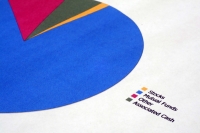 Since Mr. Market is in a mood to take profits, (which I mentioned in this space was likely) let’s look at gaining some practical education about current investing. If you want to invest in stocks or bonds but want diversification for more safety, what choices do you have? In general terms, the answer is different types of mutual funds.
Since Mr. Market is in a mood to take profits, (which I mentioned in this space was likely) let’s look at gaining some practical education about current investing. If you want to invest in stocks or bonds but want diversification for more safety, what choices do you have? In general terms, the answer is different types of mutual funds.
The first modern mutual fund was launched in Boston 90 years ago, the Massachusetts Investors Trust. This example of an open end fund is still in business, ticker symbol MITTX, and has almost $7B of assets. It is referred to as open end because an investor may invest money (buy shares) or make a withdrawal (sell shares) on any business day of the year.
The price you pay or receive is known only when the asset prices are totaled at the end of the day’s trading. The fund manager is supposed to be achieving the best possible results for shareholders through buying and selling specific investments within the guidelines of the fund’s charter or prospectus.
Another major type is the closed end fund. These investment funds have a specific number of issued shares which usually trade on a major stock exchange. Therefore you must buy or sell shares from another holder, as though it were a stock with the value changing all day. Because of this feature, the fund shares often sell at a discount to the total value of investments inside the fund at a given time.
The newer kid on the block, the Exchange Traded Fund, is similar. Each ETF trades like a stock and changes value continuously according to the market price on an exchange. But instead of a set number of shares from day one, new shares can be created in order to meet demand, usually in 50,000 share blocks. They offer more control to an investor because you can specify certain buy or sell trigger prices instead of taking whatever price existed at day’s end.
The most widely known example of ETF is probably that representing the S&P 500 Index, symbol SPY. Each share has a piece of the 500 largest company stocks in the United States. Yesterday it closed at a price of $185.10. So you could buy a market weighted basket of 500 companies for $185 per share plus the cost of the transaction charged by the brokerage firm having your account. Because there is little change within the index from year to year, the internal expense is very small.
Voila’! You have diversity, low expense, and you can buy and sell your investment on any given day at the market price. Worldwide at the end of 2013, the Investment Company Institute says that the total value of all forms of mutual funds grew to $30.05 Trillion.
(Information from www.ici.org. Past performance is no guarantee of future results. Advice is intended to be general in nature.)





